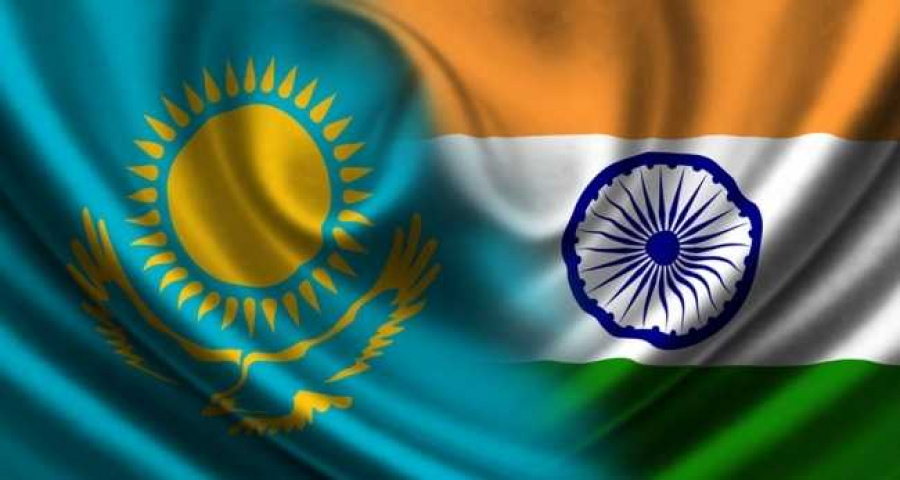India’s bilateral relations with Kazakhstan, its biggest trading partner in Central Asia and the ninth largest country in the world, have witnessed significant developments in the past few years. Celebrating 30 years of this partnership last year, the two countries reiterated their commitment to enhancing the ever-growing cooperation.

Photo credit: 24.kz.
The India-Kazakhstan strategic partnership agreement was a pivotal moment in facilitating diplomatic relations in pursuit of regional growth. The agreement, signed in 2009 during the state visit of Kazakhstan’s first President Nursultan Nazarbayev as the chief guest on India’s Republic Day, indicated the importance both countries attached to the expansion of their growing economies and cooperation. It highlighted the interest of India and Kazakhstan in ensuring mutual development and enhancing economic relations.

Dipanjan Roy Chaudhury.
This cooperation covers a wide range of areas in the economic, cultural, and political spheres, supported by a foundation of historical ties. India was among the first countries to recognize Kazakhstan’s independence in 1991 and established diplomatic relations the following year.
India can tap into Kazakhstan’s rich energy resources. The Central Asian country is the biggest producer of uranium and trades almost 90 percent of India’s uranium requirements. Kazakhstan’s state-owned enterprises signed multiple agreements with the Nuclear Power Corporation of India Limited and the Department of Atomic Energy to supply uranium to India over the years.
New Delhi also recently expressed interest in delivering nuclear fuel and components during the 13th meeting of the Indo-Kazakhstan intergovernmental commission.
One of the main drivers of the India-Kazakhstan relations has been their shared interest in regional stability and economic development. The steadily growing trade turnover between the two countries reached $2.5 billion in recent years. To increase this figure and promote investment cooperation and economic initiatives, a Joint Business Council was recently established between the Federation of Indian Chambers of Commerce and Industry and the Chamber of International Commerce of Kazakhstan.
It followed mutual agreements in diversifying cooperation in space, energy, agriculture, medicine, IT, cybersecurity, military-to-military-technical collaboration, and combating terrorism through mutual assistance.
The presidency of the Shanghai Cooperation Organization (SCO), which India holds until September this year, presents New Delhi with additional opportunities to explore its global ambitions and expand its bilateral relationship with Central Asia.
Moreover, India has provided technical assistance in election monitoring and capacity building. The two countries have also been conducting regular cultural and artistic exchanges.
Ultimately, the mutual interest between both countries must be fully utilized to promote regional integration and cooperation at the bilateral level and through organizations such as the SCO.
The author is Diplomatic Affairs Editor of The Economic Times, India.
